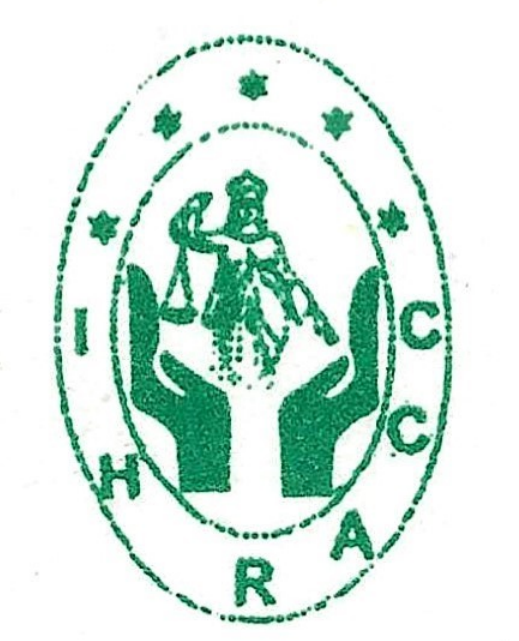About IHRACC
Welcome to The IHRACC
The Indian Human Rights and Anti-Corruption Trust was officially founded in April 2008 by Mr. K.B. Kannan, a passionate advocate for justice, equality, and integrity in public life. Deeply moved by the rising instances of human rights violations and unchecked corruption in both public and private sectors, Mr. Kannan envisioned an organization that would give ordinary citizens a platform to raise their voice, seek justice, and contribute to building a more transparent and compassionate India.
The Trust was registered and headquartered in Kalpakkam, Neithavoyal Post, Ponneri Taluk, Thiruvallur District, Tamil Nadu, with a clear focus on human rights awareness and anti-corruption initiatives.
Its founding principles were rooted in the Indian Constitution, particularly in Articles 21 and 22, which protect the life and personal liberty of every individual. Mr. Kannan firmly believed that when these rights are denied or violated, it becomes the moral duty of civil society to act.
From its early days, the Trust took a multi-dimensional approach to social justice. It began by conducting awareness programs in rural and urban areas, organizing legal aid camps, helping the poor access government schemes, and offering financial support to the elderly, children, and economically weaker sections.
Recognizing that corruption is both a cause and a consequence of human rights violations, the Trust positioned itself as a dual-action body—addressing both issues simultaneously.

1
Members

5
States

95
Graduates

IHRACC History
The Indian Human Rights and Anti-Corruption Trust was established in April 2008 by Mr. K.B. Kannan, a dedicated advocate for justice and social equity. Based in Chennai, Tamil Nadu, the trust was founded with a clear objective—to create a platform for individuals and communities to voice concerns about human rights violations and corruption. From its inception, the trust has worked relentlessly to ensure that the most vulnerable in society receive their due rights and are not exploited by corruption or injustice. Over the years, the trust has expanded its reach and impact through various educational programs, legal initiatives, and direct support to marginalized communities.
IHRACC Vision and Mission
Vision
Our vision is to establish a society where all individuals, regardless of caste, creed, religion, or gender, live with dignity, respect, and equal rights. We aim to promote fundamental human rights, combat corruption, and ensure justice and fairness for the most vulnerable sections of society. Through proactive initiatives, education, and legal action, we aspire to create a world where freedom of speech, belief, and fearlessness become the reality for all people.
Our vision is to establish a society where all individuals, regardless of caste, creed, religion, or gender, live with dignity, respect, and equal rights. We aim to promote fundamental human rights, combat corruption, and ensure justice and fairness for the most vulnerable sections of society. Through proactive initiatives, education, and legal action, we aspire to create a world where freedom of speech, belief, and fearlessness become the reality for all people.
Mission
The mission of the Indian Human Rights and Anti-Corruption Trust is to advocate for human rights, fight corruption, and improve the quality of life for marginalized communities across India. We seek to empower citizens by:
Promoting and protecting human rights for every individual.
Eradicating corruption and promoting transparency and accountability.
Providing assistance to the elderly, children, and communities living below the poverty line.
Educating the public through seminars, workshops, and publications on human rights and anti-corruption.
Offering financial aid, scholarships, and other forms of support for education, healthcare, and social welfare.
The mission of the Indian Human Rights and Anti-Corruption Trust is to advocate for human rights, fight corruption, and improve the quality of life for marginalized communities across India. We seek to empower citizens by:
Promoting and protecting human rights for every individual.
Eradicating corruption and promoting transparency and accountability.
Providing assistance to the elderly, children, and communities living below the poverty line.
Educating the public through seminars, workshops, and publications on human rights and anti-corruption.
Offering financial aid, scholarships, and other forms of support for education, healthcare, and social welfare.
IHRACC Administration
The administration of the Indian Human Rights and Anti-Corruption Trust is managed by a team of dedicated and experienced trustees, with Mr. K.B. Kannan serving as the Founder Managing Trustee.
Founder Managing Trustee: Mr. K.B. Kannan, the primary visionary behind the trust, oversees all operations and acts as the representative of the trust in legal and public matters.
Board of Trustees: The trust is governed by a Board of Trustees, which includes key individuals with expertise in law, human rights, and social welfare. The Board ensures that all activities are carried out effectively and in line with the trust's mission and objectives.
Secretary: The Secretary manages the documentation, correspondence, and organizational tasks of the trust.
Financial Trustee: The Financial Trustee is responsible for overseeing the financial integrity of the trust, ensuring transparency in the handling of funds, and preparing annual reports for the Board's review.
Founder Managing Trustee: Mr. K.B. Kannan, the primary visionary behind the trust, oversees all operations and acts as the representative of the trust in legal and public matters.
Board of Trustees: The trust is governed by a Board of Trustees, which includes key individuals with expertise in law, human rights, and social welfare. The Board ensures that all activities are carried out effectively and in line with the trust's mission and objectives.
Secretary: The Secretary manages the documentation, correspondence, and organizational tasks of the trust.
Financial Trustee: The Financial Trustee is responsible for overseeing the financial integrity of the trust, ensuring transparency in the handling of funds, and preparing annual reports for the Board's review.

